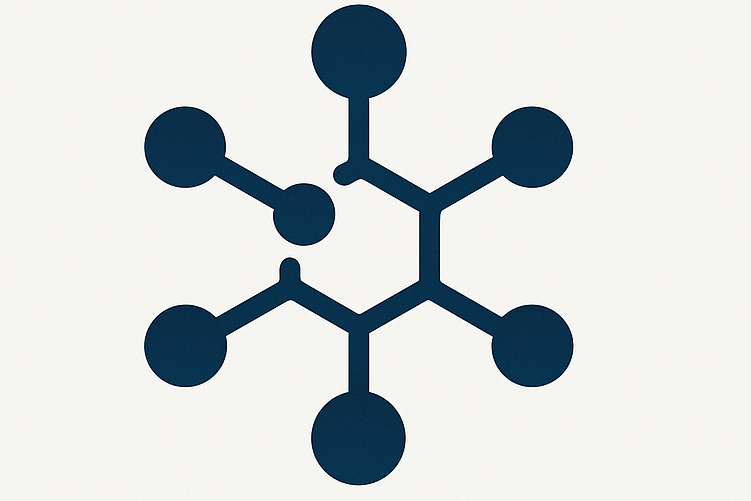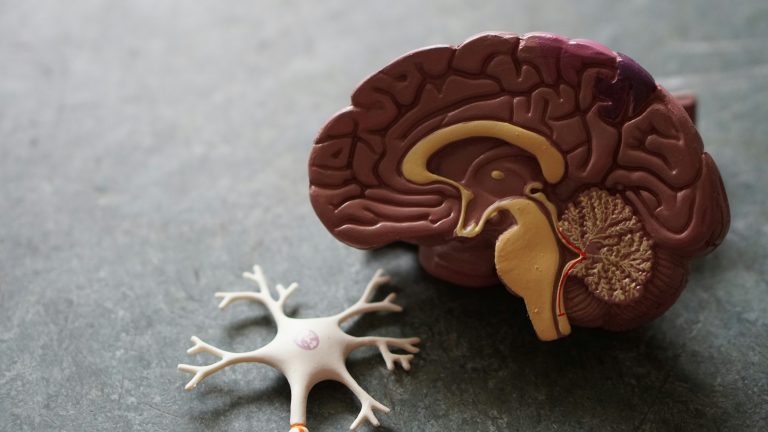Brain Supplements: Enhancing Cognitive Performance Safely

With the surge in popularity of brain supplements, many people are wondering if these products really work.
While some supplements may provide benefits, others might not be as effective as advertised.
Ingredients like omega-3 fatty acids, often found in fish oil, and B vitamins are commonly highlighted in these products. These nutrients are known to support brain health, but the extent of their impact can vary.

Scientific research on brain supplements provides mixed results. For example, some studies suggest that vitamins such as vitamin E may contribute to cognitive health, but they don’t guarantee significant improvements for everyone.
Consumers should be cautious and informed when considering these options, as not all claims are backed by strong evidence.
More detailed insights can be found in articles from reputable sources like Harvard Health.
Choosing a brain supplement can be challenging with so many options available.
Products like Focus Factor promise improved memory and focus.
Always researching a product and its ingredients before trying it is essential.
Having realistic expectations and understanding the evidence behind these supplements will guide better decision-making.
Understanding Brain Supplements

Brain supplements are gaining popularity, but understanding their definition, types, and workings is crucial. This section explores these facets to provide clarity on what these supplements truly offer.
Definition and Purpose
Brain supplements are dietary products designed to support mental functions like memory, focus, and cognitive performance. They often consist of vitamins, herbs, amino acids, or other natural substances.
These supplements seek to enhance overall brain health and cognitive abilities by boosting the performance of the brain’s neurotransmitters.
The primary purpose is to aid mental clarity and health. They may be used by individuals seeking improved focus during tasks or those looking to maintain sharpness with age. The idea is to complement a diet, not replace the nutrients one would get from a balanced diet.
Types of Brain Supplements
Brain supplements come in various forms. Some of the most common ones include omega-3 fatty acids found in fish oil, which are important for brain health.
Others may focus on B vitamins, essential for energy and brain function, or vitamin E, known for its antioxidant properties.
Amino acids, like L-theanine, may also be part of these supplements. They are reputed for enhancing mental alertness, especially when combined with caffeine.
Additionally, herbal supplements such as ginkgo biloba, believed to aid memory and blood circulation, are often included. The choice of supplements can vary based on individual health needs and concerns.
How Brain Supplements Work
Brain supplements interact with the body’s biochemistry to potentially support cognitive functions.
Ingredients like omega-3 fatty acids are crucial for brain cell membrane health, which can promote better communication between neurons. These compounds may also reduce inflammation, which supports overall brain function.
Herbs like ginkgo biloba may enhance blood circulation, leading to improved oxygen supply to the brain, possibly aiding memory and focus.
Some amino acids and vitamins serve as building blocks for neurotransmitters, chemicals that transmit signals in the brain, playing an important role in mood regulation and cognitive processes.
While some evidence supports these benefits, results can vary greatly. It’s important that people research or consult a healthcare professional before starting any supplement.
Scientific Research

Research on brain supplements is extensive, examining their effectiveness and potential benefits. Various studies assess both short-term and long-term impacts on brain health.
Overview of Current Studies
Recent research has looked at a range of brain supplements, such as omega-3 fatty acids, vitamin E, and B vitamins. Many studies focus on these nutrients’ role in cognitive functions like memory and concentration.
For example, omega-3 fatty acids found in fish oil are often studied for their potential to support brain health.
Several studies have involved diverse participant groups to evaluate effectiveness. This includes testing on different age groups to determine how supplements may benefit people differently based on age or cognitive condition. The research also explores combinations of nutrients and their possible additive effects.
Efficacy of Brain Supplements
The efficacy of brain supplements varies considerably. Some studies suggest benefits, while others are inconclusive.
For instance, ginseng and ginkgo have been explored for their ability to boost brain function, yet results remain mixed.
Omega-3s are supported by more consistent findings, suggesting they may contribute positively to brain function. The impact of vitamin E and B vitamins has been less definitive.
It’s important to note that while some users report feeling improvements, scientific evidence does not universally back these claims.
Long-Term Effects on Brain Health
Long-term effects of brain supplements are still under review. Currently, there is a lack of comprehensive long-term studies, which means potential risks and benefits over extended periods remain somewhat unknown.
Researchers continue examining how consistent intake of these supplements might affect brain aging.
Concerns include whether long-term use leads to dependency or adverse effects. Some studies raise questions about interactions with medications or health conditions.
Public interest in cognitive performance as a public health issue fuels ongoing research, although clear guidelines for prolonged use have not been established yet.
Key Ingredients
Brain supplements contain a variety of ingredients known to support cognitive health. This section explores some of the most significant components found in these supplements, including Omega-3 fatty acids, antioxidants, B vitamins, and amino acids.
Omega-3 Fatty Acids
Omega-3 fatty acids play a critical role in brain function. They are found in high amounts in the brain and are essential for memory and performance.
These fatty acids can be sourced from fish oil, which is rich in docosahexaenoic acid (DHA) and eicosapentaenoic acid (EPA).
DHA supports neuronal structure, while EPA is believed to have anti-inflammatory effects. Including omega-3s in the diet has been linked to better cognitive health and can potentially reduce the risk of age-related cognitive decline.
Antioxidants
Antioxidants protect brain cells from oxidative stress, a process that can lead to cell damage. Many brain supplements include Vitamin E and resveratrol, both known for their antioxidative properties.
Vitamin E helps maintain the integrity of neural cells, while resveratrol is found in red grapes and can improve blood flow to the brain. Regular intake of antioxidants can also enhance communication between neurons, which is vital for maintaining brain health.
B Vitamins
B vitamins are crucial for maintaining nerve function and energy production. Specifically, vitamins B6, B9 (folic acid), and B12 are vital for the brain as they help produce neurotransmitters and reduce homocysteine levels.
High homocysteine levels have been associated with neurodegenerative diseases. B vitamins also support energy metabolism in brain cells, contributing to better focus and mental clarity.
Amino Acids and Proteins
Amino acids are the building blocks of proteins and are essential for neurotransmitter production.
Ingredients like L-theanine and ginseng can have calming effects and boost mood.
L-theanine, found in tea, promotes relaxation without drowsiness, while ginseng helps in improving cognitive function. These compounds support mental alertness and help enhance memory and concentration, making them popular choices in formulations for brain supplements.
Safety and Side Effects
When considering brain supplements, understanding their potential risks, interactions with medications, and guidelines for safe use is vital. Learning about these aspects helps individuals make informed choices for their health.
Potential Risks
Brain supplements can present various risks that consumers need to be aware of. Some individuals experience side effects such as nausea, indigestion, and blurred vision, particularly with certain nootropics.
For instance, some nootropics may cause orthostatic hypotension.
Not all products are verified by health authorities, which makes their safety uncertain. Consumers need to be cautious, as unregulated supplements might contain harmful substances or incorrect dosages.
Research shows that these “brain-boosting” products could sometimes lead to harmful drug interactions or unexpected side effects.
Interaction With Medications
It is crucial to consider how brain supplements may affect other medications a person is taking. Supplements can interact with prescribed drugs, possibly leading to adverse effects.
The risk of serious interactions rises with the number of supplements being used.
Healthcare advisors often underscore the importance of consulting with a medical professional before starting any supplement routine, especially if taking multiple medications.
For example, the American Academy of Nutrition and Dietetics provides insights on the potential interactions between supplements and medications, which can help individuals navigate these concerns safely.
Guidelines for Safe Use
To safely consume brain supplements, individuals should follow several key guidelines.
First, they should only purchase products from reputable brands or those recommended by healthcare professionals.
It is also advisable to start with the lowest possible dose to monitor how the body reacts.
Consistent monitoring is essential, especially if other medications are involved.
It’s important to seek guidance from healthcare providers to ensure compatibility and avoid any adverse effects.
Keeping informed about the latest research on brain supplements can also support making well-informed decisions.
Websites like Harvard Health provide valuable information on safe practices for using these products.
Choosing the Right Supplement
Selecting the best brain supplement involves evaluating several factors like ingredients, trusted sources, and personal needs. Understanding these elements helps make informed decisions and ensures safe choices that maximize benefits.
Criteria for Selection
When choosing a brain supplement, it is important to check the ingredients. Look for well-researched components like omega-3 fatty acids, vitamin D, B vitamins, and amino acids like L-theanine.
Some brain supplements combine caffeine with L-theanine to enhance mental performance.
Examine the label closely for any sweeteners, allergens, or items that are restricted in certain diets. Being aware of these ensures that the product aligns with individual dietary needs.
The dosage instructions should be clear and reasonable. More is not always better, so it is crucial to follow recommended amounts. Selecting supplements with transparent labels can provide peace of mind.
Trusted Sources
Choose supplements from reputable brands or manufacturers.
Supplements are not regulated like medications, so it is essential to look for third-party testing or reviews to confirm quality and safety.
Healthcare organizations, such as Harvard Health, advise caution with supplements that promise quick results or dramatic improvements. Reliable products usually provide gradual benefits.
Look for endorsements or certifications from industry-recognized bodies. These indicate that the supplement has undergone quality checks and meets certain standards, providing an extra layer of trust.
Personalized Approach
Consider personal health needs when choosing a brain supplement. A supplement that works for one person may not be suitable for another.
For example, individuals with low vitamin D or B12 might need supplements that target these deficiencies to improve cognitive function, as explained by GoodRx.
Consulting a healthcare professional is beneficial. They can help determine which supplements are most appropriate based on personal health status, dietary habits, and specific goals.
Remember that supplements are not one-size-fits-all. Tailoring choices to individual health requirements and goals leads to better results and helps avoid unnecessary risks.
Use in Different Populations
Different groups of people use brain supplements to support various cognitive needs. For students, these supplements may help with memory and concentration. Older adults often seek them for maintaining cognitive health, while athletes might use them to support mental sharpness during physical activity.
Students and Academic Performance
Brain supplements are popular among students aiming to boost academic performance. These supplements often include ingredients like omega-3 fatty acids, caffeine, and certain B vitamins.
Students might use them during periods of intense study, hoping to enhance memory and focus. Despite these claims, scientific evidence supporting significant effects remains mixed.
Some students report improved alertness with moderate caffeine intake. However, reliance on supplements should not replace healthy habits such as adequate sleep, balanced nutrition, and consistent study practices. Regular exercise and maintaining a healthy lifestyle can also positively influence academic performance.
Aging Populations
Many aging individuals turn to brain supplements to help maintain cognitive health.
Common supplements for this group include omega-3 fatty acids, ginkgo biloba, and vitamin E.
Products like these are often marketed for their potential to support memory and delay cognitive decline associated with aging.
Research indicates that omega-3s, found in fish oil, may aid brain function, though evidence is not conclusive.
Meanwhile, the effectiveness of vitamin E and ginkgo biloba is debated, with studies showing varying results.
It is crucial for older adults to consult healthcare professionals before starting any new supplement regimen.
Athletes and Cognitive Function
For athletes, cognitive function is crucial, and some use supplements hoping to enhance focus and decision-making during sports.
Ingredients such as caffeine and creatine are popular among athletes.
These are believed to not only boost physical performance but also help in maintaining mental clarity and reaction time during intense activities.
Caffeine is widely researched and is known for improving alertness and stamina.
Creatine, while mostly associated with muscle mass development, might also support brain health.
It’s essential for athletes considering brain supplements to balance these with proper diet, hydration, and rest to maximize benefits responsibly.
For more detailed insights and comparisons of different supplements, visit Nuvance Health.
Supplement Regulation
Brain supplements are often marketed with bold claims about improving cognitive function, but regulation of these products can be quite complex.
It’s important to understand the role of the FDA and other quality certifications to know what you are consuming.
FDA Oversight
The United States Food and Drug Administration (FDA) does not approve dietary supplements, including brain supplements, before they are sold to consumers.
Instead, supplement manufacturers are responsible for ensuring the safety of their products and making truthful claims.
However, the FDA can take action against products that are misbranded or adulterated.
For example, as stated by Nuvance Health, no cognitive health supplements have received FDA approval. This means that consumers should be cautious and do research before using these products.
If a supplement is reported to have adverse effects, the FDA can review and potentially take it off the market.
Certifications and Quality Assurances
In addition to FDA oversight, other certifications can provide quality assurances.
Organizations such as NSF International, U.S. Pharmacopeia (USP), and ConsumerLab conduct third-party testing to verify if the supplements contain what their labels claim.
These certifications can help consumers identify high-quality products.
For instance, look for NSF or USP marks on the packaging.
While these certifications ensure that the supplements meet certain quality standards, they do not guarantee effectiveness in improving brain health.
It’s also important to read labels carefully and consult healthcare providers to make informed decisions.
Alternative Approaches to Brain Health
There are various ways to support brain health beyond traditional supplements.
Diet plays a key role in providing essential nutrients.
Physical activity stimulates brain function.
Mental exercises like cognitive training can enhance cognitive skills and memory.
Diet and Nutrition
Diet significantly impacts brain health.
Consuming foods rich in omega-3 fatty acids, such as fish and flaxseeds, is beneficial. Omega-3s are linked to improved cognitive function and reduced inflammation.
Antioxidants found in berries and leafy greens can help protect brain cells from damage.
It’s also important to include B vitamins in the diet, as they support energy production and brain health. Whole grains and nuts, being rich in these vitamins, can be a good addition to meals.
Staying hydrated also boosts concentration and mental clarity.
Exercise
Exercise is another important factor.
Regular physical activity improves blood flow to the brain, which can enhance mood and memory.
Aerobic exercises like walking, cycling, or swimming are highly recommended for brain health.
These activities help increase the size of the hippocampus, the part of the brain involved in memory and learning.
Strength training, such as lifting weights, also supports cognitive health by promoting growth factors in the brain that facilitate brain cell growth.
Consistency in exercise routines is key for lasting benefits.
Cognitive Training
Cognitive training involves activities designed to improve mental abilities like memory, attention, and problem-solving.
Puzzles, such as crosswords or Sudoku, challenge different parts of the brain and help maintain mental sharpness.
Technology offers many brain-training apps and games that provide structured cognitive workouts.
These activities require focus and strategy, stimulating the brain and encouraging neural connections.
Engaging in new learning experiences or picking up hobbies can also enhance cognitive flexibility and resilience.
Future Directions
The future of brain supplements is set to focus on targeted research, innovative products, and holistic approaches to cognitive health.
This involves cutting-edge studies, pioneering supplement formulations, and integrative strategies blending various health aspects.
Emerging Research
Emerging studies are exploring new ingredients and their effects on brain health.
Ongoing research investigates the potential of omega-3 fatty acids and antioxidants in preserving cognitive function.
Some studies are looking at the role of vitamins like A and C in delaying cognitive decline.
Scientists are also examining lesser-known compounds that might improve memory and focus.
As more studies are published, they offer deeper insights into how specific nutrients can affect brain health.
This developing body of work helps guide the formulation of new supplements that are more effective and based on solid science.
Innovations in Supplementation
Innovations in brain supplementation focus on developing new formulas that combine traditional and novel ingredients.
Companies are looking beyond common supplements and experimenting with unique blends, like a high EPA ratio.
These formulations aim to enhance selective attention and improve executive function, which has shown promise in recent trials.
There’s also interest in fermentation techniques to increase the bioavailability of nutrients.
By making nutrients easier for the body to absorb, these innovations could significantly improve cognitive performance.
Such advancements provide more effective options for consumers seeking enhanced cognitive support.
Integrative Brain Health Strategies
Integrative strategies involve combining supplements with other lifestyle interventions to support cognitive health.
This approach includes a balanced diet, regular physical activity, and mental exercises alongside dietary supplements.
The goal is to create a comprehensive plan that targets various facets of brain health.
Researchers highlight the need for personalization in these strategies, tailoring interventions based on individual needs.
This holistic approach can offer more effective and sustainable benefits, supporting overall brain function.
Frequently Asked Questions
Brain supplements are widely discussed for their potential to boost memory, focus, and cognitive function. This section addresses common questions about their effectiveness and recommended options.
What are the top-rated brain supplements for improving focus and concentration?
Many people seek supplements to boost focus and concentration.
Some popular choices include ginkgo biloba and bacopa monnieri, which are known for their beneficial effects on mental clarity and focus.
These supplements are often praised for their ability to enhance cognitive performance.
How do vitamins impact cognitive functions and memory in adults?
Vitamins play a crucial role in brain health.
For instance, B vitamins such as B6, B12, and folic acid are known to support memory and cognitive function.
Omega-3 fatty acids also contribute to overall brain health, helping to maintain optimal cognitive abilities in adults.
Which brain supplements are recommended by consumer reports for cognitive enhancement?
Consumer reports often highlight supplements like omega-3 fatty acids and certain amino acids for their positive effects on brain health.
These supplements are analyzed based on effectiveness and safety, providing consumers with informed choices about cognitive enhancement options.
Are there any scientifically proven benefits of taking brain supplements?
Research suggests that while some supplements may offer benefits, others may not be as effective.
According to Harvard Health, the scientific evidence supporting brain supplements is limited, highlighting the importance of informed decision-making.
What are the best nootropics for students aiming to enhance their studying capacity?
Students often seek nootropics to aid in studying.
Racetams and L-theanine are examples of compounds frequently used for their potential to improve mental energy and focus.
These nootropics may help increase alertness and mental clarity, valuable during intense study sessions.
What vitamins are essential for clearing brain fog and enhancing memory recall?
Vitamins such as D, E, and the B-complex are essential for brain health. These vitamins can help clear brain fog and improve memory recall by supporting neural health and communication.
Incorporating these into one’s diet can aid in maintaining clear and effective cognitive function.






